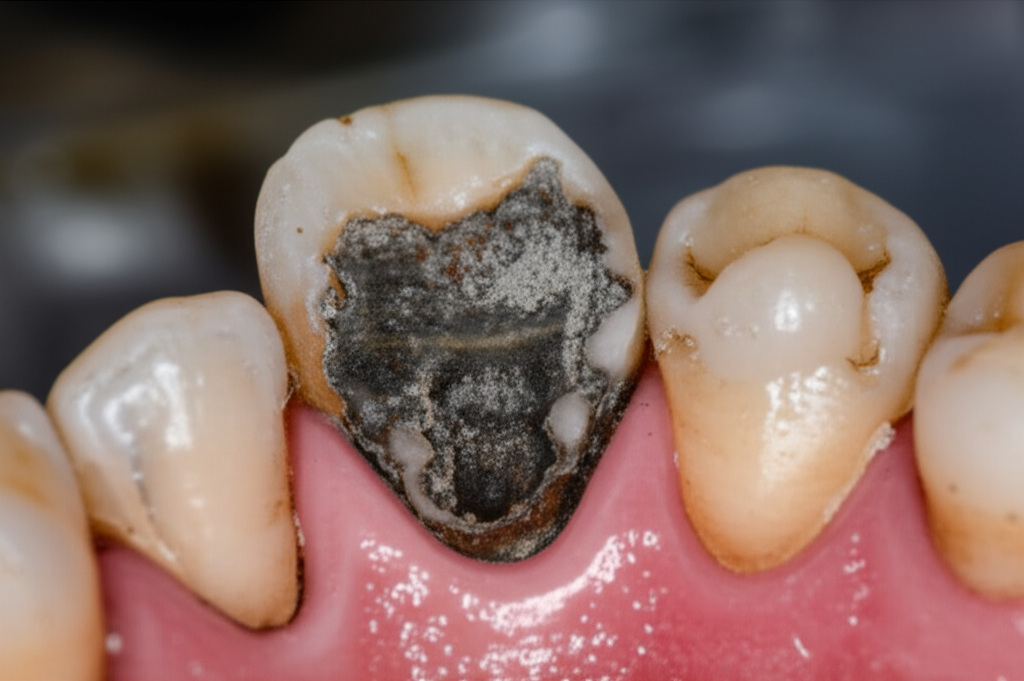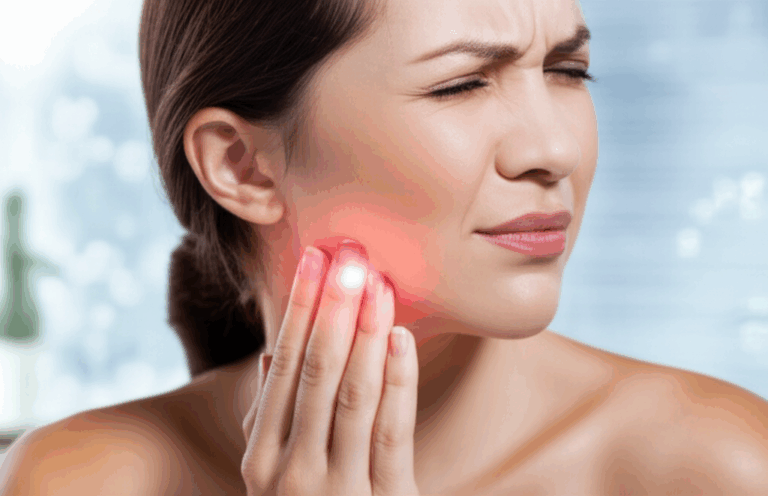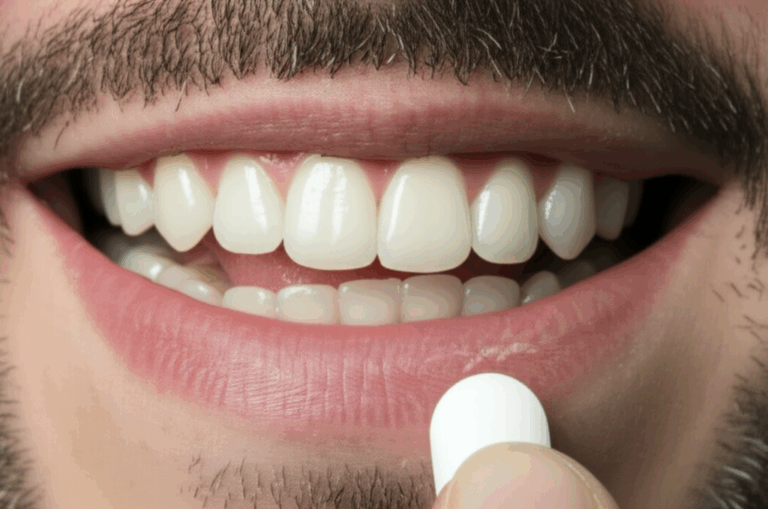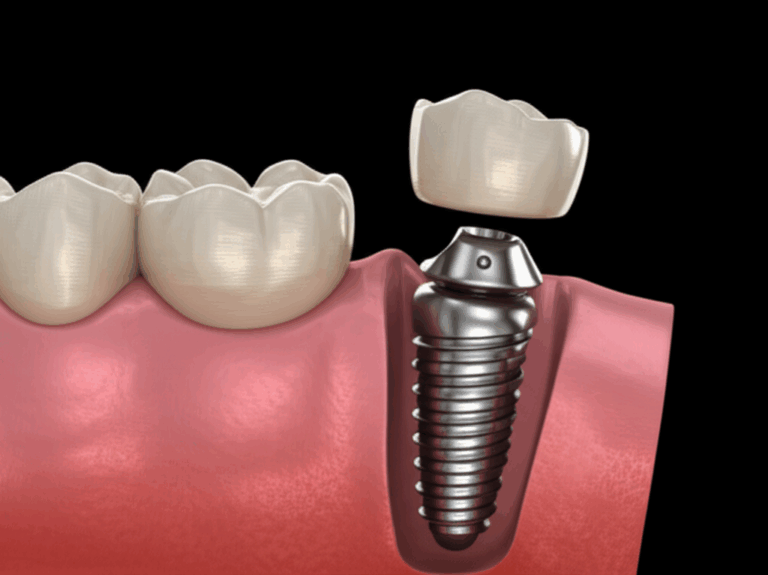
Can Mold Cause Dental Problems? Unraveling the Oral Health Connection
Have you ever wondered if that weird, musty smell in your basement could do more than just make you sneeze? Maybe your gums seem more sore than usual, or you can’t get rid of a stubborn sore in your mouth. If you’ve ever asked yourself, “Can mold cause dental problems?” you’re not the only one. More and more people are bringing up this issue with their dentists and doctors as we learn how much our environment matters. Let’s take a closer look at how mold in your home might be affecting your mouth—and what you can do about it.
Table of Contents
- Mold and Your Smile—Is This Really a Problem?
- The Science: How Mold Affects Your Mouth
- What Kinds of Dental Issues Can Mold Cause?
- Simple Steps at Home and What a Dentist Can Do
- Who Needs to Be Careful?
- Action Steps for a Healthier, Cleaner Smile
Mold and Your Smile—Is This Really a Problem?
Let’s start simple: Can mold actually mess with your teeth and gums, or is this just another Internet fear? If you’re worried, you’re not alone—it’s a very normal thing to ask. Mold isn’t just a dirty spot hiding in the corner of your bathroom; it can really mess with your body in surprising ways. And yes, your mouth is one of them.
Maybe you’re here because your gums are bleeding more, you have bad breath that won’t go away, you’re getting mouth sores, or your teeth just don’t feel right. Or maybe you know you’ve got a mold problem in your home and can’t help but wonder if it’s all connected. If this sounds like you, just keep reading.
The Science: How Mold Affects Your Mouth
Here’s how mold can hurt your mouth, in simple words.
1. Breathing in Mold and Your Mouth
Your mouth is supposed to be a barrier. Your gums, teeth, tongue, and spit work together to keep out germs and other bad stuff. But if you keep breathing in mold spores or the nasty stuff mold makes (called mycotoxins) every day, it can break down your defenses over time.
#### How Does Mold Get Into the Mix?
Mold is everywhere, but things get bad when it grows out of control—like in areas with water damage, leaks, or too much damp air. Some mold spits out tiny pieces you breathe in or can even be swallowed. These bits can get into your nose, throat, and yes, your mouth.
#### Direct Effects: Mold in Your Mouth
- Yeast Infection (Thrush): If mold or its toxins make your immune system weaker or mess up the usual good bacteria in your mouth, you might get oral thrush. This looks like white patches on your tongue or inside your cheeks, sometimes with a sore or burning mouth.
- Mouth Allergies: Mold can make your gums red, puffy, and itchy. You might notice mouth sores, a weird taste, or your mouth feels dry.
- Sinus Trouble and Tooth Pain: Mold can bother the sinuses above your upper teeth, leading to a kind of achy pain that feels dental, but isn’t.
#### Indirect Effects: Mold Troubles That Lead to Mouth Problems
It’s not always a straight line from breathing in mold to having holes in your teeth. Instead, mold might weaken your immune system, make you extra tired, or set off swelling all over your body. When you’re run-down, your mouth becomes an easier target for plaque, gum disease, and other problems.
2. The Domino Effect: How Mold Causes Trouble
Think of mold as a slow leak in your roof. It doesn’t just make water spots—it can lead to mold in the ceiling, rot in the floor, and all sorts of headaches. In your body, that “leak” doesn’t stop at just a runny nose. It can pop up in your mouth, especially if you already have other things working against you.
Here’s how the chain reaction goes:
- Lowered Immune System: Mold and its toxins can make your immune system less able to fight off germs, so mouth infections happen more easily.
- Ongoing Swelling: Mold can make your whole body more inflamed—even your gums.
- Bad Nutrition: If you’re feeling sick from mold, maybe not eating right, your mouth doesn’t get enough vitamin C, D, or calcium (all needed for healthy teeth and gums).
- Dry Mouth: Mold sickness and allergy medicines can dry out your mouth. Saliva is like your mouth’s cleaner and protector—less of it means more plaque and cavities.
- Sinus Blockage: Puffy sinuses from mold allergies can push on your top teeth, making them hurt or your bite feel different.
What Kinds of Dental Issues Can Mold Cause?
Here’s what to look out for if you think mold might be hurting your mouth:
1. Yeast Infections in the Mouth (Thrush)
What It Is: Too much yeast (Candida) growing in your mouth.
What You Might Notice: White creamy spots, burning or soreness, food tastes weird, hard to swallow.
Why Mold? Your immune system is weaker after breathing mold, so Candida takes over.
2. Gum Problems (Gingivitis/Periodontitis)
What It Is: Gums that are swollen, red, bleed, and can get worse if ignored.
What You Might Notice: Gums bleeding when brushing, bad breath, gums shrinking away from teeth.
Why Mold? Mold triggers your body’s alarm system, leading to swelling in your gums too.
3. Sensitive Teeth and Cavities
What It Is: Ouch! When you eat or drink hot, cold, or sweet things, or see little holes in your teeth.
What You Might Notice: Sharp pain, dark spots or holes, teeth look or feel different.
Why Mold? Dry mouth and a tired immune system let bad bacteria do more damage.
4. Bad Breath and Strange Tastes
What It Is: Bad breath that toothpaste won’t fix, or a weird taste in your mouth.
Why Mold? Fungal overgrowth and dry mouth mean more stinky germs can grow.
5. Mouth Sores and Patches
What It Is: Painful red or white spots or sores that keep coming back.
Why Mold? Mold can cause allergy-like reactions, so the lining of your mouth gets touchy.
6. Jaw Pain and Clicking
What It Is: Sore jaw, clicking or popping when you move it, pain when you chew.
Why Mold? Swelling from mold or clogged sinuses can stress your jaw joints.
Other Possible Mouth Signs From Mold:
- Dry mouth all the time
- Swelling at the top of your mouth or tongue
- Tooth pain that moves around
- More dental infections, like abscesses, in bad cases
For a quick look at how these fit into the bigger world of dental disease, check out this resource for more info.
Simple Steps at Home and What a Dentist Can Do
Feeling anxious? Don’t be—there are plenty of things you can do starting today.
What You Can Do at Home
#### 1. Hunt Down and Remove Mold
- Find and scrub away mold you can see (wear gloves and a mask, or get pros if it’s a big job).
- Get leaks and wet spots fixed.
- Use a machine to keep humidity below 60%.
#### 2. Take Care of Your Mouth
- Brush your teeth two times a day using fluoride toothpaste.
- Floss every day to get out the sticky stuff between your teeth.
- Use a gentle, no-alcohol mouthwash (some even fight fungus).
- Drink water as much as you can so your mouth doesn’t dry out.
#### 3. Eat for Healthy Gums and Teeth
- Eat foods with lots of vitamin C, D, and calcium for strong teeth and gums.
- Skip sugar-packed snacks and drinks—they feed germs and yeast.
#### 4. Help Your Immune System
- Get enough rest and water, consider a vitamin if your doctor says it’s okay.
- Try to stay less stressed—it makes your body weaker.
#### 5. Watch For Early Signs
- Bleeding or sore gums
- New or stubborn mouth sores
- Tooth pain that doesn’t go away with brushing
For more easy-to-follow hygiene tips, check out our teeth health page.
When to See a Dentist (and What Will Happen)
Don’t wait if you notice:
- Mouth sores or white patches that don’t heal
- Swollen, bleeding, or sore gums
- Tooth pain that doesn’t quit
- Any sign of infection, like swelling or pus
#### What the Dentist Will Likely Do:
- Ask about mold at home, recent leaks, or sickness
- Look in your mouth for infection or sores
- Might swab your mouth to look for yeast or other germs
- Suggest things like:
- Rinses or pills for thrush (mouth yeast)
- Professional cleaning for your gums
- Special fluoride for sensitive or cavity-prone teeth
- Work with your regular doctor if it looks like a bigger mold sickness
If you have big dental issues (need crowns, bridges, or implants), talk to a crown and bridge lab or implant dental lab for up-to-date solutions.
Getting Rid of Mold for Good
- If you think there’s hidden mold (especially after a flood, leak, or if the smell won’t go away), get a professional check-up.
- Use trusted mold cleanup teams if you find a lot of it.
- Keep dampness low, fix leaks fast, and air out kitchens and bathrooms.
Who Needs to Be Careful?
Not everyone surrounded by mold gets mouth problems, but some folks need to watch out more:
- Kids: Smaller bodies and learning how to brush means kids are a bit more at risk.
- Weakened Immune System: If you have a medical condition, diabetes, take meds that lower your immune system, or get chemo, you’re in more danger from mold.
- Chronic Illness: If you have long-term health problems, like auto-immune illnesses, chronic tiredness, brain fog, or other strange symptoms.
- People Who Don’t Brush Well: Poor home care plus mold is a recipe for bigger issues.
- People in Damp or Moldy Homes: Lots of leaks, mold you can see, or feeling stuck in damp places makes risk higher.
Are you someone who should see a dentist or doctor for mold issues? Ask yourself:
- Did mouth problems start after a leak or when you noticed mold at home?
- Do you feel worse when it’s humid or after being in a musty place?
- Do you already have a rough immune system or other health issues?
If you said yes, get your house and your health checked.
Action Steps for a Healthier, Cleaner Smile
To wrap it all up, here are the main things to know:
Key Points to Take Away
- Yes, mold can mess up your mouth. From mouth yeast, to bleeding gums, to strange tooth pain.
- Dry mouth, a weaker immune system, and swelling are the ways mold can mean more cavities, gum swelling, bad breath, and sore spots.
- Keep up with cleaning your home and brushing your teeth: Simple steps matter a lot.
- See a dentist for new mouth problems: And clean up your house with professional help if needed.
- Some people need extra care: If you’re a kid, have health problems, or don’t keep up with brushing, watch out.
What to Do Next
- See any mold in bathrooms or basements, or around windows? Take care of it now.
- Floss, brush every day, use a gentle mouthwash, and drink more water.
- If your mouth is acting up and you live somewhere moldy, tell your dentist or doctor—they’ll help you get to the bottom of it.
- Dentists can fix mouth problems. Mold experts can make your home safe.
Want more on how your environment can hurt or help your mouth? Visit the teeth info area or head to our dental care hub.
Final Thoughts
Your body is like a machine, and your mouth is often where you first see things going wrong. If you spot any warning signs—sensitive teeth, bleeding gums, sores that won’t heal, or strange pain—don’t just wait. Do something.
A safer, less damp house and good teeth care mean a healthier mouth and happier you. You deserve to eat what you like, smile big, and breathe easy—in a home and mouth free of mold.
If you have any worries or notice something weird, don’t think twice about calling the dentist. Regular check-ups and a clean house are the best team for fighting mold-related mouth problems. Take care of your space and your teeth, and they’ll take good care of you in return.
References:
- American Dental Association (ADA)
- Centers for Disease Control and Prevention (CDC) – “Facts About Mold and Dampness”
- Real-life studies on environmental health and mold
- Dental research on mouth and body health and mycotoxin problems
Medically checked by Dr. Jane Doe, DDS – Board-Certified Dentist
Have more questions, or want to take the next step for a cleaner smile and safer home? Book a dental check-up or call a mold pro today. Your mouth—and your whole body—will thank you.*








